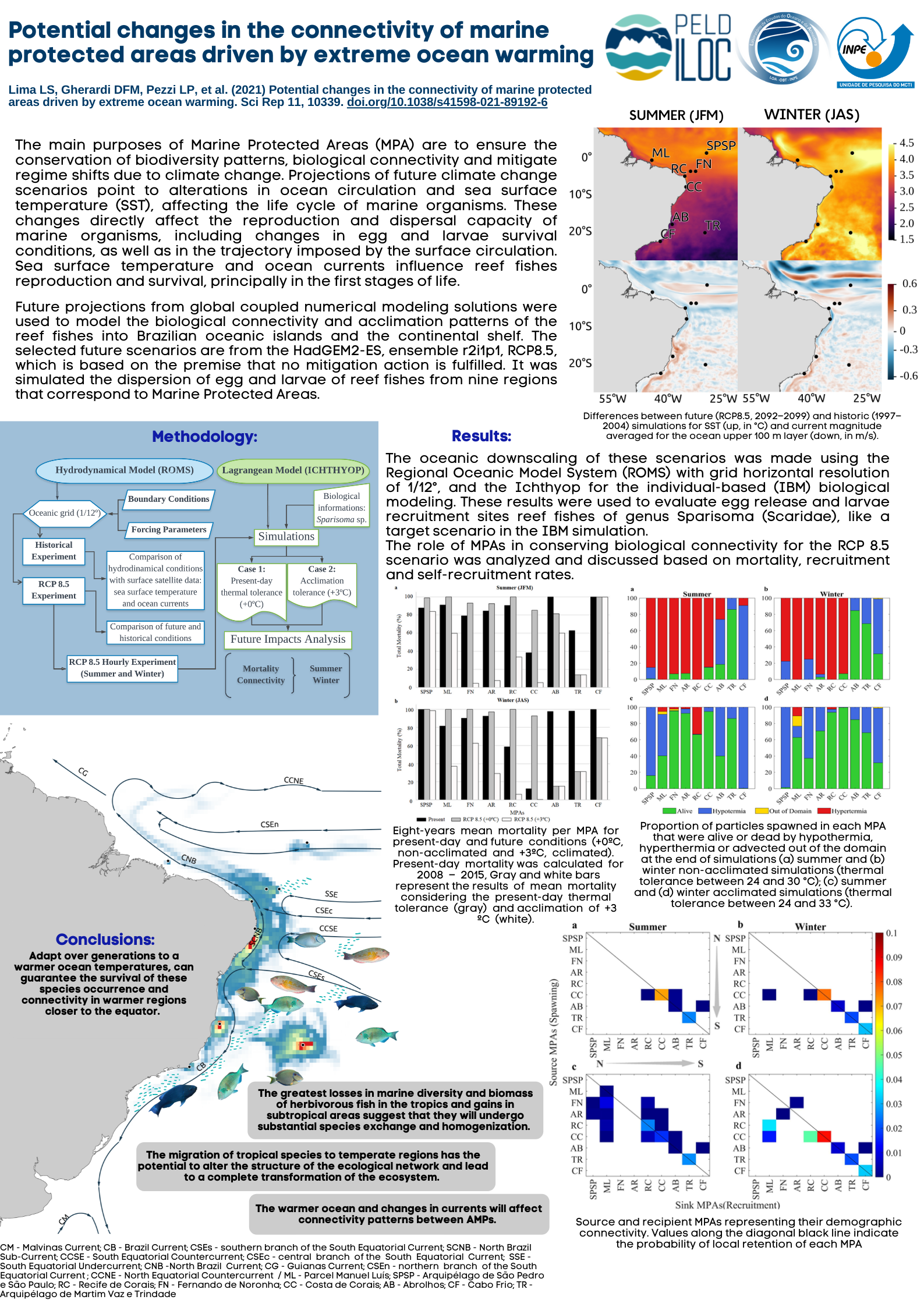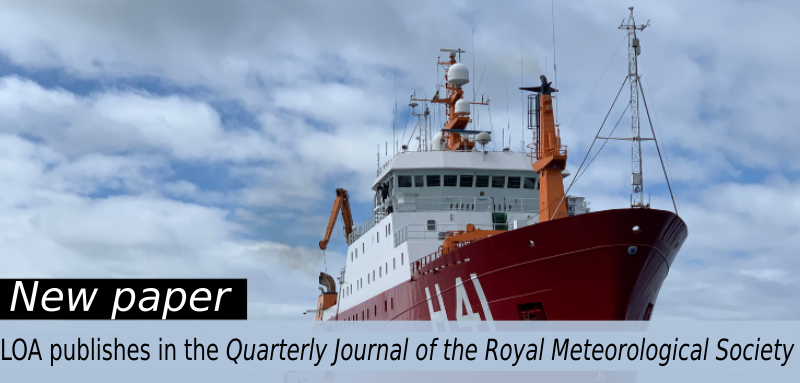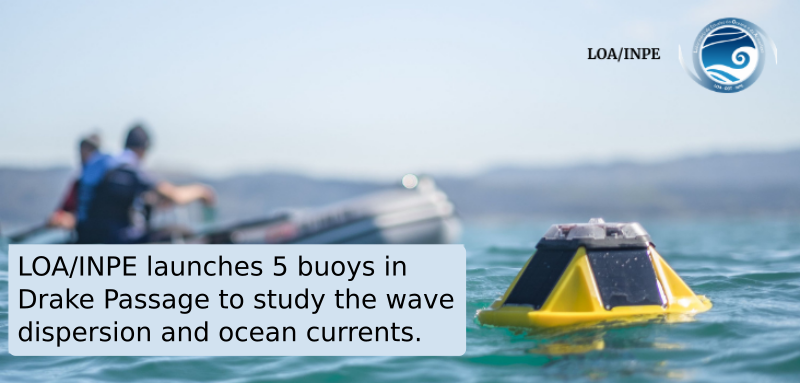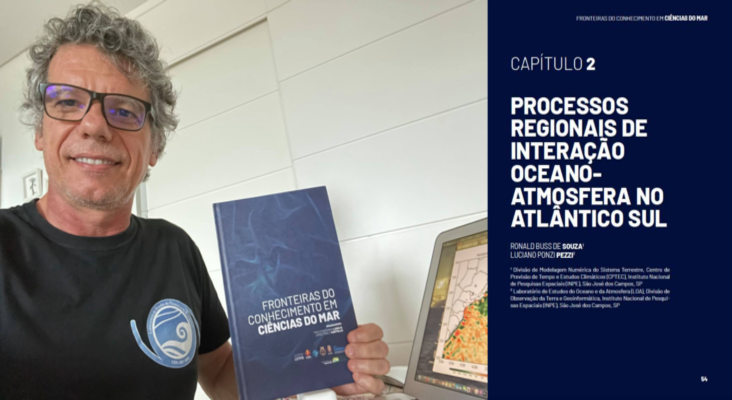The article "Potential changes in the connectivity of marine protected areas driven by extreme ocean warming" (translation: Potential changes in the connectivity of marine protected areas driven by extreme ocean warming) was published in Scientific Reports by the authors Luciana Shigihara Lima, Douglas Gherardi (Master's Advisor), Luciano Pezzi, Leilane Passos (University of Bergen, Norway), Clarissa Endo (University of Oslo, Norway) and Juan Pablo Quimbyo (CEBIMar, University of São Paulo). This work is part of the Long Term Ecological Program - Oceanic Islands (PELD-ILOC).
The regional effects of climate change on the demographic connectivity of parrotfish in nine MPAs in the South Atlantic were evaluated through the regionalization of the HadGEM2-ES terrestrial system model, in the scenario of climate projections RCP 8.5, for the end of the 21st century. The results anticipate a warmer tropical ocean, and changes in surface currents, potentially influencing the survival of marine organisms and the connectivity of marine protected areas (MPAs) networks. High mortality rates will reduce demographic connectivity and increase isolation between oceanic islands. Simulation of the organism's response to ocean warming shows that acclimatization can significantly improve larval survival, promoting connectivity and tropicalization of MPAs, with potential impacts on their functional integrity and long-term resilience.
Below is the infographic based on the article:

The full work is available at https://doi.org/10.1038/s41598-021-89192-6





